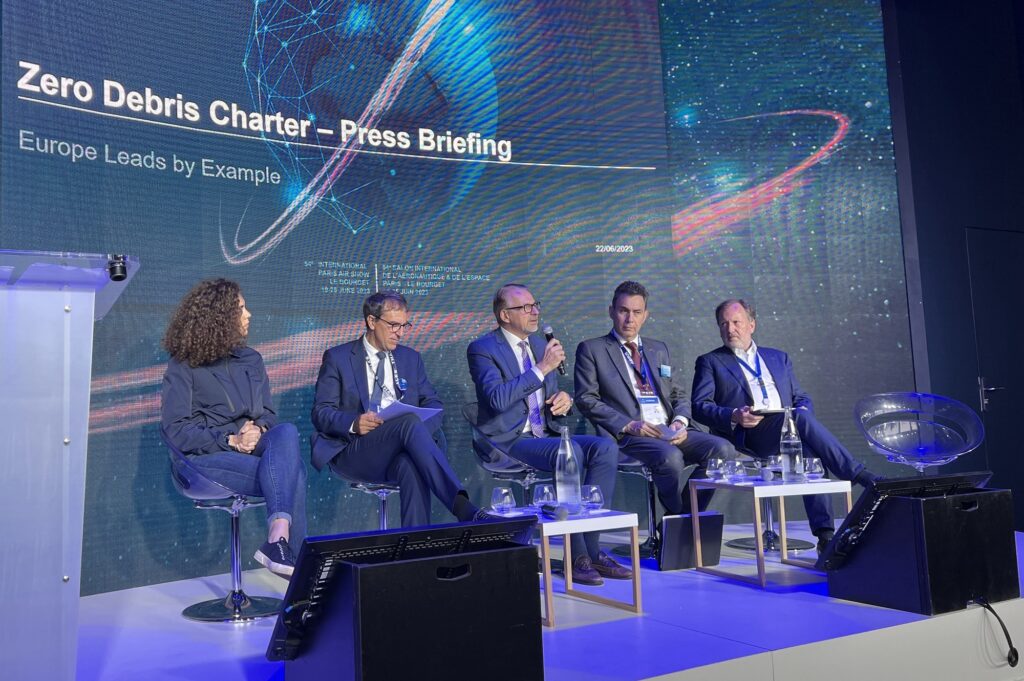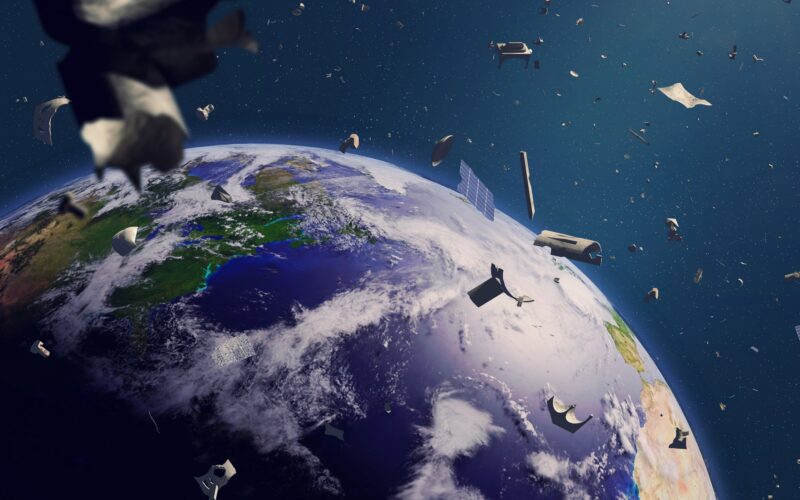During the Paris Air Show 2023, the European space industry came together to address the pressing issue of space debris with the presentation of the Zero Debris Charter.
The European Space Agency (ESA), a central player in the European space ecosystem, has emerged as a leader in fostering new technologies, standards and operational practices to enable space debris mitigation and remediation.
In response to calls from its Member States to encourage such efforts, ESA has taken the initiative by launching and facilitating the Zero Debris Charter. Signatories will aim to leave no more debris in valuable orbits by 2030. The charter is currently in the define phase and should be ready by the end of 2023.
The Paris Air Show 2023 saw global space figures emphasizing the urgent need to tackle the growing accumulation of space objects and outlining strategies to ensure a sustainable future for space exploration.
“Every 8 minutes there is a red alert for collision in space,” Jean-Marc Nasr, Head of Space Systems, Airbus Defence and Space explained. “It is not acceptable. Space is a gift for mankind, all companies need to act.”
Highlighting the sheer volume of space debris, Hervé Derrey, CEO of Thales Alenia Space, drew attention to the million-plus objects measuring less than 1cm that traverse Earth’s orbit at high speeds. “If we want space to contribute to our future, we need to protect access to it,” Derrey emphasized.
The French ‘Loi des Opérations Spatiales’ (Space Operations Law) was put forth as an example for other nations and a foundation for the forthcoming European space law. The panel advocated for the creation of tighter regulations to protect space, including a United Nations-level charter.
“The disadvantage of the UN so far is that it only provides guidelines and not a law,” Josef Ashbacher, ESA General Director commented. “We need a much stronger mechanism. We need to make players understand that the whole industry is at stake.”
“We also need to have satellite operators onboard,” added Lutz Bertling, Board member of the OHB Group. “Some of them do not see space debris as an issue in the case of their business. This needs to change, with the help of regulations. We have some big players openly saying they do not care.”
Underlining the importance of incentivization, Anthea Comellini, an engineer at Thales and member of the ESA astronaut reserve, explained that space junk was also an economic issue:
“Collision avoidance maneuvers are costly, as they require bringing extra fuel to space. Only in 2022, the ISS had to do three collision avoidance maneuver. Each of them costs $1 million.”
The discussion also touched upon the prohibition of anti-satellite activities, which were labeled as hostile acts in space. The potential consequences of space conflicts were highlighted, with participants emphasizing the need to enforce existing laws and hold those who disregard them to account.


